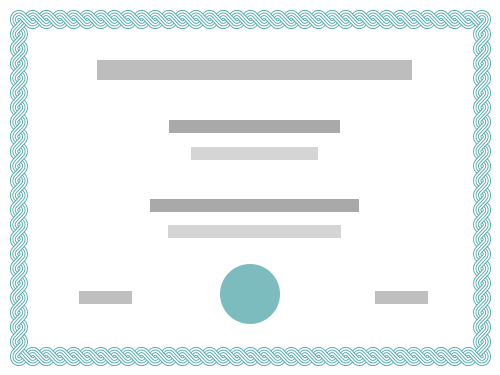HIV Care and Sexual Health Assessment for American Indian and Alaska Native Patients
Course
Explore best practices in inclusive sexual health assessment and HIV care. These courses recognize research, data, and evaluation as indigenous values, while utilizing the strengths of western science and staying grounded in traditional ways of knowing.
These modules were created and funded by Urban Indian Health Institute, a Tribal Epidemiology Center that serves Urban Indian Health Programs across the nation.
About this Independent Study
This activity was originally released on October 1, 2018 and is available for continuing education credit until December 23, 2025. Last reviewed/updated on May 24, 2023.
This course will help prepare you to provide optimal HIV prevention, screening and treatment in any primary care setting. You will learn practical tips for performing a brief sexual health assessment and how to provide HIV and sexual health services in a culturally sensitive manner to people of all genders and sexual orientations. These learning modules were created and funded by Urban Indian Health Institute, a Tribal Epidemiology Center that serves Urban Indian Health Programs across the nation. They recognize research, data, and evaluation as indigenous values while utilizing the strengths of western science and staying grounded in traditional ways of knowing. Their mission is to decolonize data, for indigenous people, by indigenous people. Each of the modules includes a written transcript of the audio/narration that is approximately 30-40 minutes in length.
Who Should Attend
This course is designed for staff who provide medical care to American Indian and Alaska Native patients. This includes physicians, physician assistants, nurse practitioners, nurses, medical assistants and other staff involved in patient care, including clinical providers working with Indian Health Services, Tribally Operated Clinics and Urban Indian Clinics.
Learning Objectives
After completing this course, participants will be able to:
- Describe best practices for quality, inclusive sexual health assessment and basic HIV prevention, testing, and treatment
- Describe best practices in providing sexual health care for LGBTQ2S patients
There are five sections in this series:
- Introduction and Overview
- Module 1: Culturally Proficient Sexual Health Care for People of all Genders and Sexual Orientations
- Module 2: Sexual Health Assessment
- Module 3: Talking with Patients about HIV
- Module 4: Biomedical Prevention of HIV (ART, PEP and PreP)
Authors
- Kimberly Aumack Yee
- Brett Niessen, MPH
- Kathy Silverman
- E. Cooper Stodden, CSE
Registration & Fees
This course is FREE OF CHARGE.
Continuing Nursing Education (CNE)
Cardea Services is accredited as a provider of nursing continuing professional development by the American Nurses Credentialing Center's Commission on Accreditation.
HIV Care and Sexual Health Assessment for American Indian and Alaska Native Patients: 3 contact hours will be awarded.
Continuing Medical Education (CME)
This activity has been planned and implemented in accordance with the accreditation requirements and policies of the California Medical Association (CMA) through the joint providership of Cardea and the Urban Indian Health Institute, a division of the Seattle Indian Health Board. Cardea is accredited by the CMA to provide continuing medical education for physicians.
Cardea designates this internet activity enduring material for a maximum of 3 AMA PRA Category 1 Credit(s)™. Physicians should claim credit commensurate with the extent of their participation in the activity.
Successful completion of this continuing education activity includes the following:
- Completing the entire CE activity
- Passing the post-test with a score of 80% or greater
- Completing the online evaluation
- Submitting an online CE Request
Funding
These learning modules were created and funded by Urban Indian Health Institute, a Tribal Epidemiology Center that serves Urban Indian Health Programs across the nation. They recognize research, data, and evaluation as indigenous values while utilizing the strengths of western science and staying grounded in traditional ways of knowing. Their mission is to decolonize data, for indigenous people, by indigenous people.

Here is the course outline:
Introduction and OverviewIntroduction and Overview |
Culturally Proficient Sexual Health Care for People of all Genders and Sexual OrientationsModule 1 |
Sexual Health AssessmentModule 2 |
Talking with Patients about HIVModule 3 |
Biomedical Prevention of HIVModule 4 |
Post-TestPlease complete the post-test |
Evaluation & CertificateComplete a course evaluation and select your CE certificate. |
Completion
The following certificates are awarded when the course is completed:
 |
Certificate of Completion |
 |
CME for MD/DO Jointly Provided: Enduring Material |
 |
CME for Non-MD/DO Jointly Provided: Enduring Material |
 |
CNE Independent Study |
 |
MNA_CNE Independent Study |




.png?lmsauth=5ec29864a644c9f8cc34d8b4d240dcd4c9cbb8e6)
